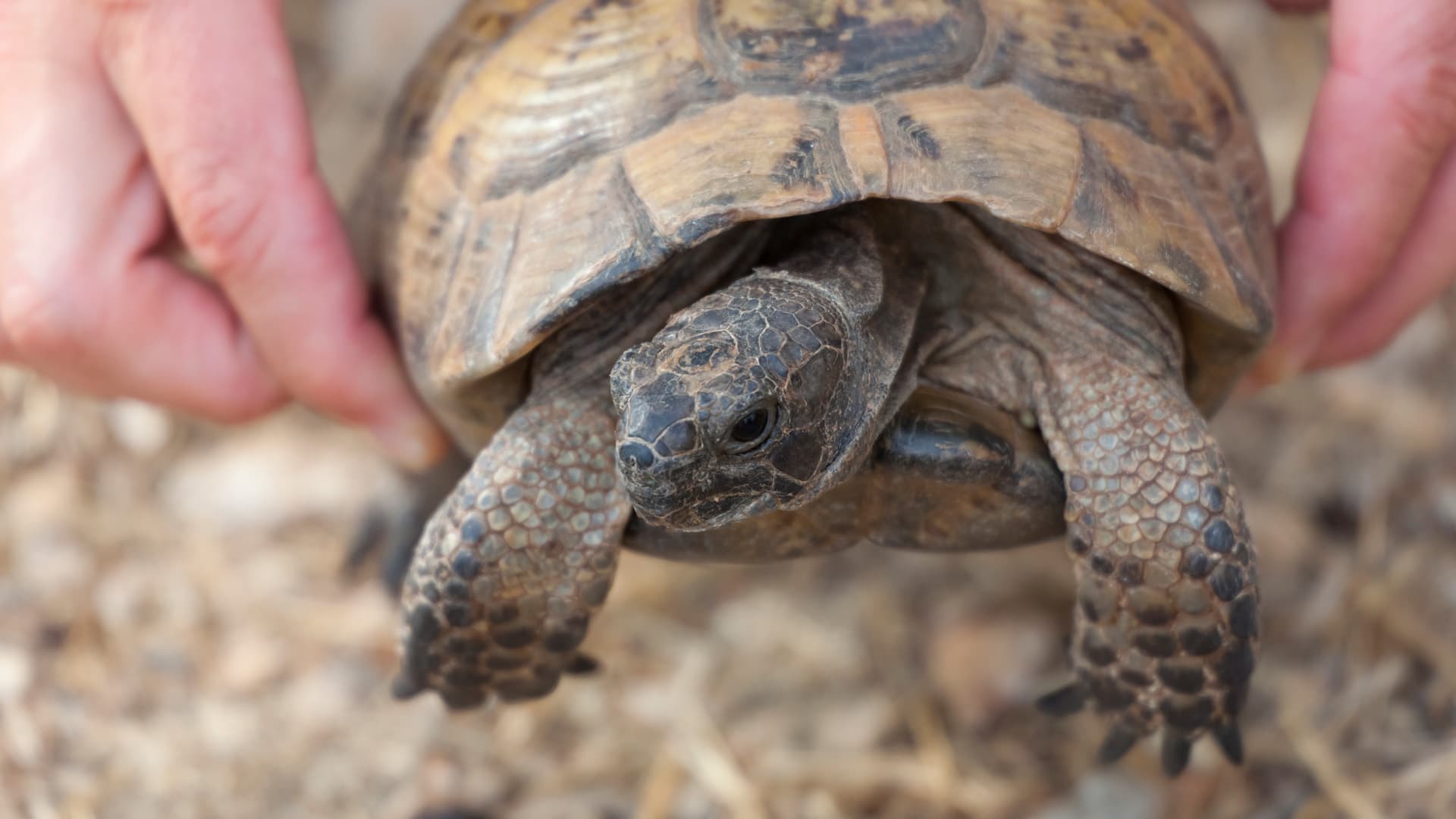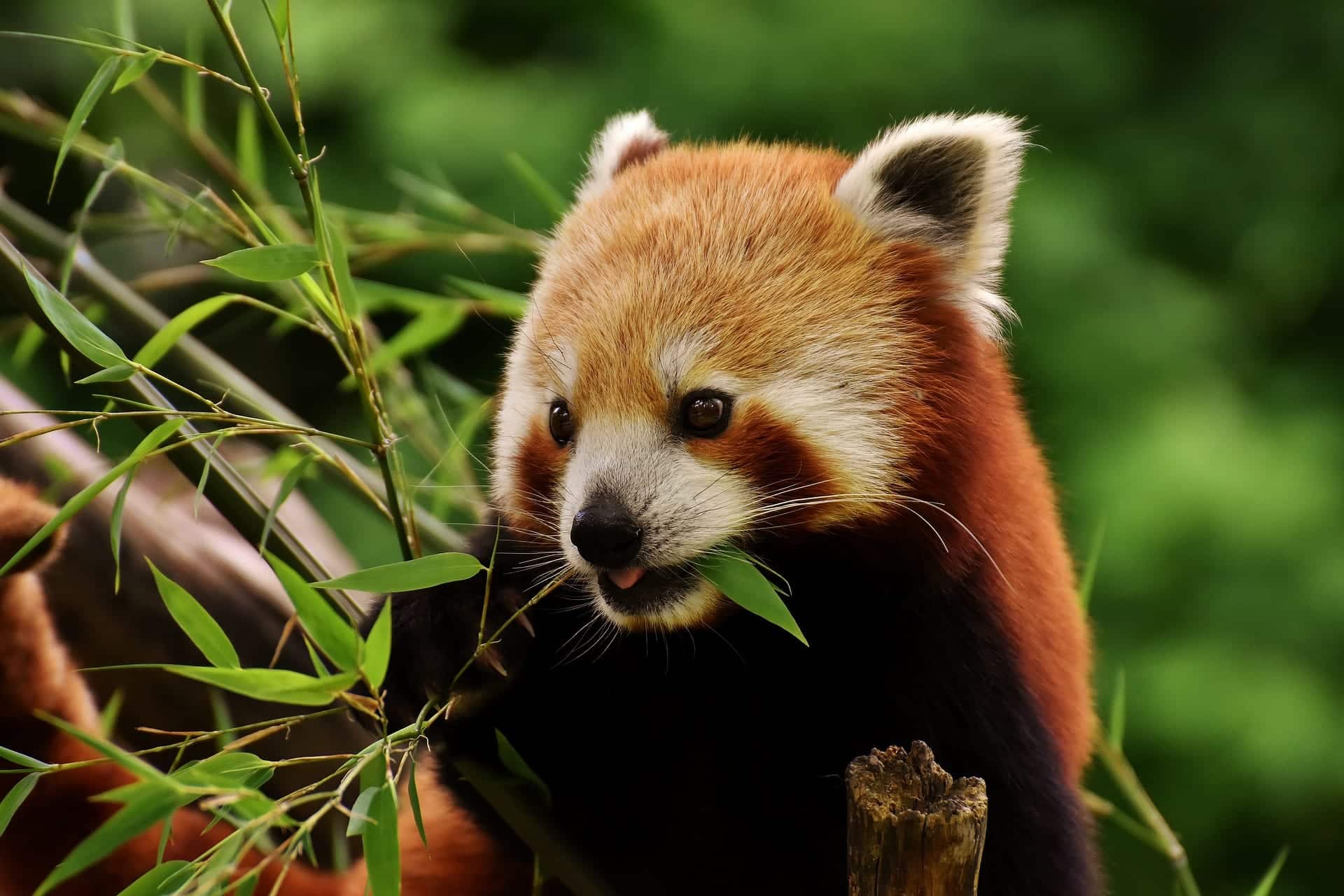Wildlife Biologist Vs Zoologist - × GUESTS: In order to prevent the spread of COVID-19, masquerades are recommended for guests 2 years and older. Social distancing is also encouraged.
This is one of the most frequently asked questions at the Smithsonian's National Zoo of Biology and Conservation: How can I work at the zoo?
Wildlife Biologist Vs Zoologist

There are different answers depending on the job. But one thing is required of them: commitment to animal welfare and species conservation.
Two Endangered Amur Leopard Cubs Born At Saint Louis Zoo
If you are interested in a career that involves close contact with animals on a daily basis, such as a wildlife biologist or veterinarian, an advanced degree in zoology or veterinary medicine is recommended. Jobs that require less training but require direct and frequent contact with animals include veterinary technician, zoo technician, or wildlife technician.
Since most of these jobs are popular, there are more applicants than positions. You should expect stiff competition and salaries that are low relative to the level of education required to perform them. And these jobs are not easy. Caring for animals can require round-the-clock attention in some circumstances. Wildlife biology can sometimes involve working outdoors in challenging field environments.
Want to take a conservation and wildlife lesson for adults? Be sure to visit the Smithsonian-Mason School of Conservation. The institution offers residential, practicum, and interdisciplinary programs in conservation biology for undergraduate and graduate students and professionals based at the Smithsonian Institution for Conservation Biology in Front Royal, Virginia.
Zoos have a variety of jobs, from animal keepers to development officers and public affairs managers. Read about who did what below.
Zoologist Wildlife Biologist.. By Peb72006 On Emaze
The best way to start a career working with animals is to broaden your general understanding of animals and their habitats. To do this, many people study natural sciences such as biology, zoology, and ecology in high school and college. You can always start reading as much as you can about animals and habitats. You can also look into classes offered by your local zoo or natural history museum.
Bottom line: For kids who think an animal-related career is an exciting possibility, working hard in all subjects at school is the best way to get started. A strong understanding of science and math concepts will help students master these subjects for years to come.
High School: Taking a challenging math and science curriculum (biology, chemistry, physics, calculus, etc.) is the best preparation for college-level math and science courses.

University: Courses in biology, microbiology, physics, zoology, botany, anthropology, organic and inorganic chemistry, biochemistry, and genetics are offered or required in animal-related degree programs.
Video: In The Field: Wildlife Biologist
Higher Education: Master's or Ph.D. in zoology, wildlife management, anthropology, or a related field, or a DVM (Doctor of Veterinary Medicine) is required for many positions.
Along with academic training in these areas, knowledge of and interest in animals demonstrated through work and/or volunteer experience is beneficial and often essential to success in an animal-oriented career. Following your personal interests is especially important when choosing the type of experience.
Yes i do. Exposure to a specific field of animal work and people working in animal-focused organizations can help you clarify your goals, narrow your focus, and ultimately choose the career that's best for you. The more you know about which places are available, the easier it will be to plan your course of study. Your professional degree is usually the primary qualification for an animal-related career.
Good places for exposure to wildlife and related jobs are zoos and aquariums; national parks; wildlife refuges, management facilities and animal shelters. You can gain experience with pets by volunteering at animal hospitals and clinics; horse farm or yard; and nurseries or boarding facilities.
Zoologists And Wildlife Biologists Career: Everything You Need To Know In One Min
If you're interested in animals but don't want to pursue a degree, there are other careers that may interest you. Many people work as educators, writers, fundraisers, managers, and artists in zoos, museums, government agencies, and conservation organizations. , and designers.
If one of these fields is right for you, you should still learn as much as you can about animals while training for one of these careers. For example, if you're interested in writing about animals, you can major in English and major in zoology.
Finally, there are many jobs in zoos and other organizations that do not involve animals at all, but allow you to be around them or support their conservation. For example, zoos employ accountants, human resources specialists, salespeople, food service workers, carpenters, electricians, horticulturists, and more.

Want to know what it's like to work at the Smithsonian's National Institute of Biology and Conservation? Then join us as we go behind the scenes of our video series,
I Work In Zoology. This Is What I Wear To Work Every Day.
! In each video, a different staff member takes you behind the scenes of their work and answers questions from curious students as we explore the intricacies of animal care and wildlife conservation. Learn more about what "I want to work at a zoo" means.
Access to unique questions and project-based learning activities for each video for elementary, middle, and high school students. The Video Content Guide is linked to the Next Generation Science Standards and the Common Core State Standards for grades K-12.
Join Kenton Kearns, a zoo biologist, as he takes us behind the scenes of a small mammal home and shows why animal care can sometimes feel like being a personal assistant! From preparing meals for over 30 species to helping exercise the brains and bodies of the animals in his care, Kenton is the go-to person for every animal, from monkeys to meerkats!
Meet Sarah Putman, an endocrinologist at the Smithsonian Institution for Conservation Biology. What is an endocrinologist, you ask? That's a fancy way of saying Sarah uses poop to solve animal health mysteries at the National Zoo and other zoos around the world - she's a real poop detective! In this episode, Sarah takes us inside the lab as she spins clouds of "quick dust" into important information about zoo animals. Is the panda pregnant? Sarah is on the job!
Zoologist And Wildlife Biologist By Elsa Doherty
What might the Smithsonian's National Zoo look like in 50 years? Jen Daniels can tell you! As the zoo's landscape architect, Jen helps plan and predict the future of the zoo - she's our zoo soothsayer! Join Jen as she shares with us the research, design and planning involved in creating a zoo that appeals to both animals and people.
Part of Craig Saffo's job as curator of Big Cats and Andean Bears at the zoo is to marry lions, tigers and bears. For carnivores, playing amour is no easy task and certainly not for the faint of heart! Join Craig as he takes us behind the scenes with his latest pups and talks about all that goes into creating and caring for these adorable pups. Scientists estimate that there are approximately 8.7 million species on Earth. About 1 million to 2 million of these species are considered animals. Zoologists are responsible for observing and studying these animals. Zoologists are animal lovers who often travel far and wide to study different species in their habitats. As wildlife continues to adapt to climate change and the impact of human activities, the role of the zoologist will continue to be critical for endangered populations.
But what does it take to become a zoologist? For entry level, you almost always start with a college degree. Becoming a zoologist can begin with a bachelor's degree, master's degree, or doctorate. Popular degrees include animal health and behavior, wildlife conservation, and wildlife and fisheries biology.

In this article, we will find out how to become a zoologist by following the steps to become a zoologist. You can also learn about different branches of zoology. This way, you will know exactly how to become a zoologist with the specialization that best suits you.
Unique Careers You Can Get With A Jjc Degree
So what does a zoologist do? A zoologist studies animals in the wild and in captivity. By observing different species in their habitats, zoologists understand how animals behave in the wild. Its purpose is to identify and monitor how different species interact within their ecosystem. This is especially important as climate change continues to alter a variety of habitats.
They can work indoors, perform laboratory experiments, and prepare reports to present their findings. However, many zoologists work outdoors and travel frequently to collect specimens, collect data, and monitor and manage wildlife populations.
Zoologists and biologists study the behavior of animals in different environments. They observe and measure the physical characteristics of different species, monitor their diet, monitor migration patterns and reproduction rates, and address any threats they may face. Threats to wildlife can be invasive pests, diseases, or toxins in their environment. By looking at the impact of humans on these species, zoologists develop conservation plans for endangered species and manage hunting programs.
What does it take to become a zoologist? Dedication, patience, strong communication skills, IT experience, analytical thinking, leadership skills and excellent teamwork skills are essential. Being a zoologist has many advantages, especially
Zoologist Hi Res Stock Photography And Images
How to become a zoologist and wildlife biologist, zoologist and wildlife biologist, zoologist and wildlife biologist job description, difference between zoologist and wildlife biologist, zoologist and wildlife biologist colleges, wildlife biologist education, zoologist and wildlife biologist education, zoologist wildlife biologist, wildlife biologist degree online, zoologist or wildlife biologist, zoologist and wildlife biologist jobs, zoologist and wildlife biologist salary
0 Comments